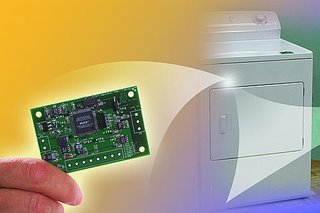Excel PHEV Study

A new study shows that Plug-ins can both reduce driving expenses and vehicle emissions.
Here is the story.
With Smart Grid, Plug-In Hybrid Cars
Could Have System Benefits
Physorg
Feb 28, 2007
Xcel Energy announced the results of a six-month study related to plug-in hybrid electric vehicles (PHEVs) and how an increase in their popularity may affect Colorado. The study found that PHEVs may result in a reduction of the overall expense of owning a vehicle and, with the help of smart-grid technologies, eliminate harmful vehicle emissions by up to 50 percent.
The study looked at how adding PHEVs to the road could affect the electric power grid depending on when and where the cars were charging. It also looked at the overall emission footprint of these vehicles, the decreased vehicle fuel costs and how PHEVs could impact the company’s production and capacity costs.
Xcel Energy’s Utility Innovations group worked with the U.S. Department of Energy’s National Renewable Energy Laboratory (NREL) on the study. A cutting-edge computer-modeling program was used to measure the impact of a mass penetration of PHEVs and how much energy would be required to charge them. (clip)
“Successfully managing a charging program will depend on a smart utility grid,” said Ray Gogel, chief administrative officer for Xcel Energy. “This study is one step we are taking to demonstrate how to use energy more efficiently through smart-grid technologies. In order to make a dent in issues like climate change and dependence on foreign oil, the grid must change.
Plug-in hybrid electric vehicles have the potential to help us better use renewable and other nontraditional energy sources while creating a grid that is more interconnected, balanced and reliable.” more
NREL’s program was able to simulate adding vehicles to the roads in large increments, under real driving conditions, simulating an increase in the market penetration of these vehicles. The study revealed that these cars, each equipped with a 9 kilowatt-hour battery, could reduce overall CO2 vehicles emissions by half. They could also save owners more than $450 in fuel costs each year compared to a traditional combustion engine vehicle.
"Hybrid gas/electric vehicles are already on the market and PHEVs are staged for growth, so we wanted to know how that could affect our business," said Mike Carlson, CIO, Xcel Energy.
"Depending on when customers choose to recharge, adding PHEVs to the road may help reduce overall emissions of CO2 without significant increases in utility infrastructure.
In other words, PHEVs could be one piece of the puzzle to solving our global climate change problem." clip
“Successfully managing a charging program will depend on a smart utility grid,” said Ray Gogel, chief administrative officer for Xcel Energy. “This study is one step we are taking to demonstrate how to use energy more efficiently through smart-grid technologies.
In order to make a dent in issues like climate change and dependence on foreign oil, the grid must change.
Plug-in hybrid electric vehicles have the potential to help us better use renewable and other nontraditional energy sources while creating a grid that is more interconnected, balanced and reliable.”
Join Plug In Partners today.
What's New
Sign the On Line Petition
News Summary I
HOME

0 Comments:
Post a Comment
<< Home